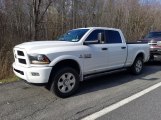Trailer Towing Tips & Safety
Please understand, a trailer's tires and suspension are not as heavy-duty, nor as refined as your vehicle's.
A trailer's tires are often smaller than your vehicle tires and the suspension is much more basic, which will make the trailer much more susceptible to damage from rough roads. Avoid driving into potholes, over curbs, driving off the edge of the road and etc. Reduce your speed on rough roads. When you stop for a fuel/rest stop, feel the trailer hubs. They may have some heat, but if you need to yank your hand back to avoid being burned, you should get to a service shop as soon as possible.
In addition, a trailer's tires are often operating near their maximum capacity of weight. Driving for several hours, especially at higher speeds, can build up excessive heat, causing fatigue and eventual tire failure. If you see that you are going to hit a curb, stop, apply your hazard lights, check your mirrors for things behind you, backup, and swing wider to avoid hitting the curb. Even going over the curb at low speed can break cords in the tires, leading to guaranteed tire failure. If you feel a trailer vibration, look for a tire with a bulge in the tread area and replace it with the spare tire.
For this reason, we strongly encourage driving at moderate speeds, under 65 mph. If a tire rim is bent, a tire has a bulge, the suspension is damaged, or we determine excessive speeds caused a tire failure, you will be charged for all expenses related to the incident.
You are responsible to keep all items securely fastened to the trailer.
We also encourage you to take the necessary tools with you to change a tire. Most of our trailers require a 13/16" socket or lug wrench to remove and install the lug nuts. Our trailers with aluminum wheels require a 3/4" socket or lug wrench. Most of the spare tire bracket nuts require a 3/4" socket. Most times your vehicle's jack will work to lift the trailer. We recommend a small rolling floor jack.
If you experience a "fish tailing" or "Death Wobble", let off the accelerator and apply trailer brakes only, by sliding/squeezing the lever on the trailer brake controller. By applying trailer brakes only, the trailer "pulls" you out of the "death wobble". This can be caused by improper weight distribution in/on the trailer, swerving to avoid hitting something and etc.
A tip for reversing a trailer: if you place your hand at the bottom of your steering wheel and move it to the right, the trailer will go to the right, if you move your hand to the left, the trailer will go to the left.



